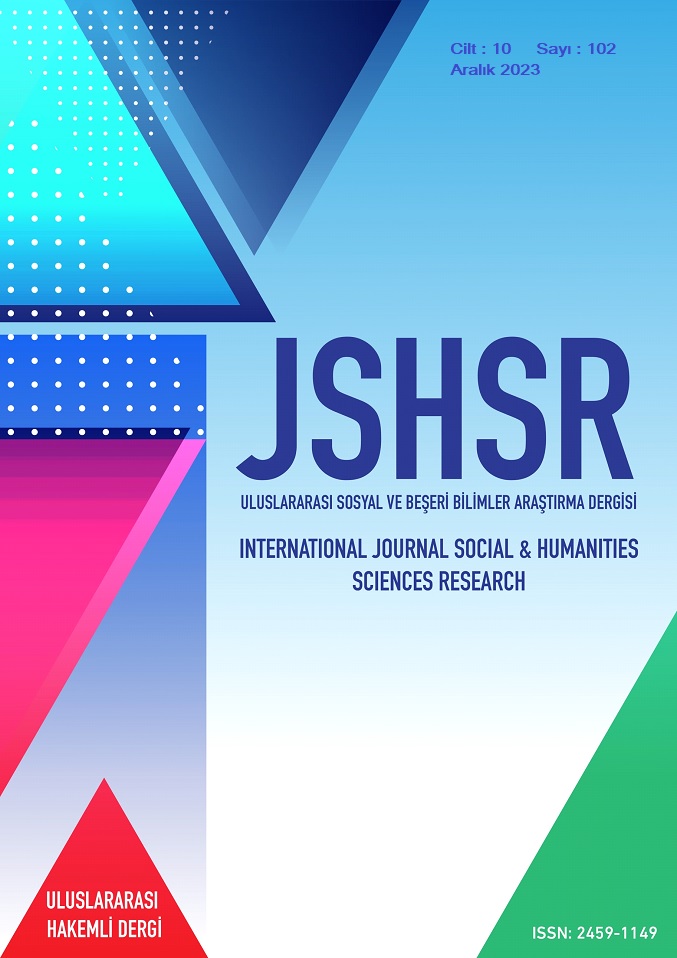Examining the Relationship Between FoMO Levels and Sleep Quality in High School
DOI:
https://doi.org/10.5281/zenodo.10452186Keywords:
FoMO, Sleep Quality, Social Media Addiction, FearAbstract
FoMO: Fear of missing out (Fear of missing out on developments on social media). The natural consequence of FoMO is social media addiction. As a result, the inability to live without the internet and social media addiction occurs. This study aimed to investigate the existence and negative effects of FoMO in high school students. In our studies, 50 10th grade students from 4 different high school types (science high school, project Anatolian high school, project religious high school and vocational high school) were sampled (n= 200).The existence of FoMO and whether it negatively affects sleep quality were investigated for 10th grade students. “Even while we sleep, is our brain affected by the fear of missing something? IS our sleep disturbed because of this fear? As a result, does FoMO reduce sleep quality? Answers to these questions were sought. The Fear of Missing Out on Social Media (FoMO) Scale and the Cumhuriyet Subjective Sleep Quality Scale were given to the sample group and administered simultaneously. Pearson correlation analysis, a parametric analysis type, was performed between the data obtained from the surveys and the two scales in the SPSS analysis program. As a result of the analysis, a moderate positive relationship was reported between FoMO and the sleep quality scale. It has been reported that students with high FoMO values have increased sleep disruptions. At the same time, it was analyzed that the results of the FoMO scale applied in 4 different types of high schools showed significant differences according to the type of school. Among the students to whom the scale was applied, 3 random students from each school type were interviewed and some of the answers to the questions were shared in the findings.
References
Alrobai, A.; McAlaney, J.; Phalp, K.; Ali, R. Online Peer Groups as a Persuasive Tool to Combat Digital Addiction. In Persuasive Technology, Proceeding of 11th International Conference, PERSUASIVE 2016, Salzburg, Austria, 5–7 April 2016; Springer Science and Business Media LLC: Salzburg, Austria, 2016.
Alutaybi, A.; McAlaney, J.; Arden-Close, E.; Stefanidis, A.; Phalp, K.; Ali, R. Fear of Missing Out (FoMO) as Really Lived: Five Classifications and one Ecology. In Proceedings of the 2019 6th International Conference on Behavioral, Economic and Socio-Cultural Computing (BESC), Beijing, China, 28–30 October 2019; Institute of Electrical and Electronics Engineers (IEEE): Miami, FL, USA, 2019; pp. 1–6.
Aydın, H. (2018), Sosyal medyadaki gelişmeleri kaçırma korkusunun (fomo) ı̇çgüdüsel alımlara etkisini öz belirleme kuramı ı̇le açıklanması. Uİİİ D-IJEAS, 2018 (17. UİK Özel Sayısı):415-426
Ertemel, A. V., Aydın, G. (2018), Dijital ekonomide teknoloji bağımlılığı ve çözüm önerileri. Addicta: The Turkish Journal of Addictions, 5, 665-690
Gezgin, D. M., Hamutoglu, N. B., Gemikonakli, O., & Raman, I. (2017). Social networks users: fear of missing out in preservice teachers. Journal of Education and Practice, 8(17), 156-168.
Gökler, M. E., Aydın, R., Ünal, E., Metintaş, S. (2016), Sosyal ortamlarda gelişmeleri kaçırma korkusu ölçeğinin türkçe sürümünün geçerlilik ve güvenilirliğin değerlendirilmesi, Anadolu Psikiyatri Dergisi, 17 (Ek 1):, 53-59
Griffiths, M. (1998). Internet addiction: Does it really exist? In J. Gackenbach (Ed.), Psychology and the Internet: Intrapersonal, interpersonal, and transpersonal implications (pp. 61-75).
Metin, B., Pehlivan, R., Tarhan, N. (2017), Üsküdar gelişmeleri kaçırma korkusu ölçeğinin geçerlilik ve güvenilirlik çalışması, The Journal of Neurobehavioral Sciences, 4 (2), 43-46
Riordan, B. C., Flett, J. A. M., Hunter, J. A., Scarf, D. ve Conner, T. S. (2015). Fear of missing out (FoMO): the relationship between fomo, alcohol use, and alcohol-related consequences in college students. Annals of Neuroscience and Psychology, 2 (7), 1-7.
Shatz, I. (2021).FOMO: Fırsatı Kaçırma Korkusu Nedir? Fırsat Kaçırma Endişesinin Üstesinden Nasıl Gelinir? evrimagaci.org.
TBM-Türkiye Bağımlılıkla Mücadele Eğitim Programı (2017), Teknolojiye BağımlıYaşama, Yeşilay, Kültür Sanat Basımevi
Traş, Z. & Öztemel, K. (2019). Facebook yoğunluğu, gelişmeleri kaçırma korkusu ve akıllı telefon bağımlılığı arasındaki ilişkinin incelenmesi. Addicta: The Turkish Journal on Addictions 6, 91−113
Tozkoparan, S. B., Kuzu, A. (2019). Öğ retmen adaylarının gelişmeleri kaçırma korkusu (fomo) düzeyleri ve siberaylaklık davranışları arasındaki ı̇lişki. AJESI- Anadolu Journal of Educational Sciences International, 9(1): 87-110
Ündar, H. R. (2018), Değişen dünyada yeni bir problem gelişmeleri kaçırma korkusu. Daimon Dergi, Aralık, Sayı:5 Dijital Çağda Korku ve Keyfin Yeni Tanımı: FoMO ve JoMO 10 İletişim Kuram ve Araştırma Dergisi
Yıldız, H. (2019), Sosyal medya çağında nispetizm fenomeni. MBB Bilgi Teknolojileri Platform Bülteni, Nisan-Temmuz 2019, Sayı: 6, s.35-40
Young, K. (January 1999) Internet addiction: symptoms, evaluation and treatment. In L. VandeCreek & T. Jackson (Eds.). Innovations in Clinical Practice: A Source Book (Vol. 17; pp. 19-31). Sarasota, FL: Professional Resource Press.
Young, K. S., & Rogers, R. C. (1998). The relationship between depression and Internet addiction. Cyberpsychology & behavior, 1(1), 25-28
Weinstein, A., & Lejoyeux, M. (2010). Internet addiction or excessive internet use. The American journal of drug and alcohol abuse, 36(5), 277-283.
Downloads
Published
How to Cite
Issue
Section
License
Copyright (c) 2023 INTERNATIONAL JOURNAL OF SOCIAL HUMANITIES SCIENCES RESEARCH

This work is licensed under a Creative Commons Attribution 4.0 International License.


